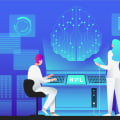AI allows you to collect large amounts of information quickly and effortlessly. You can turn this information into practical steps that improve your product and customer service process. For example, if you have automated text analysis, you can process multiple customer messages. AI helps you optimize your internal workflows and, in return, maximize your interactions with customer service. To deliver on the promise of AI-based customer service, companies can combine the reinvented vision of engagement at all customer touchpoints with the right AI-based tools, core technology, and data.
Here, 15 members of the Forbes Business Council share their expert view on how organizations can harness AI to improve their customer service. AI can support your omnichannel service strategy by helping you direct customers to the right support channels. The best use of AI is not to replace human interaction, but to improve it and reduce friction in the customer experience. Companies that want to stay ahead of the curve, according to the report, will need to adopt artificial intelligence technology to improve the customer experience over the next four years.
Unlike traditional data analysis software, AI can analyze customer behavior and data and continuously learn and improve throughout the process. Figure 1 shows the new customer service model, from communicating with customers even before they respond to a specific need, to providing solutions backed by artificial intelligence and evaluating performance afterwards. Two-thirds of millennials expect real-time customer service, for example, and three-quarters of customers expect a consistent multi-channel service experience. AI-powered learning can analyze what traits and behaviors employees bring to customer interactions, raising the bar for everyone.
If all of your chat representatives are busy handling cases, the AI can tell the customer to use live chat for a faster response. For transformed organizations, AI-based customer service can increase customer engagement, resulting in greater opportunities for cross-selling and upselling while reducing service costs. Technologies such as chatbots and sentiment analysis can help your support team optimize their workflow, respond to customer requests more quickly, and anticipate customer needs proactively. Feurer recognizes the utility of AI chatbots in providing personalized assistance to customers, but doesn't think they're a substitute for human contact.
By using artificial intelligence and real-time decision-making to recognize and understand a customer's intent through the data they produce, brands can offer a hyper-personalized customer experience. However, if done well, a customer service transformation based on artificial intelligence can bring significant value to the company, creating a virtuous circle between better service, greater satisfaction and greater customer participation. At level five, the most advanced end of the maturity scale, companies offer proactive service-based interaction, allowing them to manage more than 95 percent of their service interactions through artificial intelligence and digital channels (see the box “How is customer service maturity driven by AI”).”).











